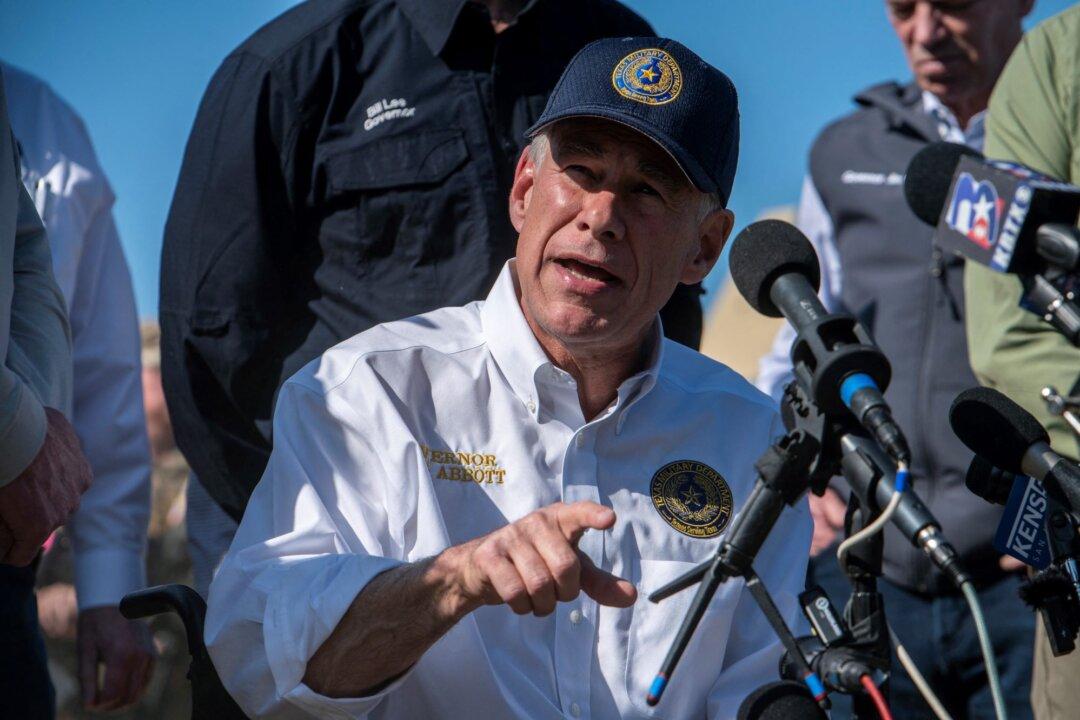Texas Gov. Greg Abbott announced on Feb. 16 a plan to build a military base camp in Eagle Pass that will house National Guard troops tasked with responding to what he refers to as “President Joe Biden’s border crisis.”
The base camp will be built on 80 acres of land in Eagle Pass and accommodate up to 1,800 Texas National Guard members, with room for an additional 500, to bolster the state’s border security capabilities.





